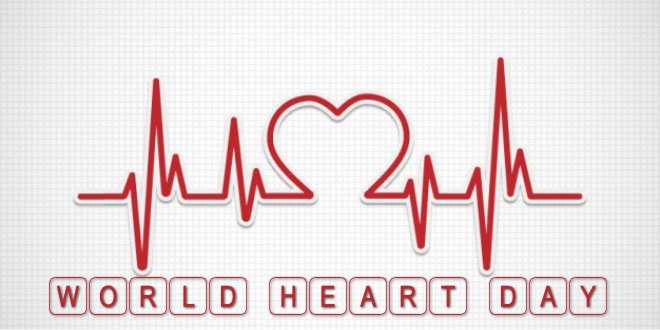World Heart Day: A heart attack is a life-changing event and often leaves people stressed about the probability of a second such episode. Experts however assure that leading a healthy lifestyle can turn around one’s heart health and reduce chances of a second heart attack.
After a heart attack, there are many changes that you need to make in order to reduce the risk of another one. Here are some of the top lifestyle changes to make after a heart attack:
1. Get regular exercise. Exercise has many health benefits, including reducing your risk of a heart attack, and being physically active can help you feel better mentally as well.
2. Eat a balanced diet. Eating a healthy diet can help you reduce your risk of developing heart disease, stroke, and other chronic diseases. Include plenty of fruits, vegetables, whole grains, and lean protein in your meals to decrease your risks for these conditions.
3. Quit smoking. Smoking is one of the biggest contributors to heart disease and other chronic diseases, so quitting smoking is one of the most important lifestyle changes you can make after a heart attack.
4. Get more sleep. Getting enough quality sleep can help you reduce your stress levels and improve your overall health overall. Make sure to get at least 7 hours of sleep every night!
World Heart Day 2022: Date, History and Goals of the day
Get more exercise
If you’ve had a heart attack, the first thing you should do is talk to your doctor. Your doctor can tell you what kind of exercise is safe for you and how much. But even if you can’t go back to your regular routine right away, there are plenty of things you can do to increase your overall fitness and health. Here are five lifestyle changes that can help after a heart attack:
1. Get more exercise. Even if it’s just a few minutes of brisk walking per day, it will help improve your overall health and reduce your risk of another heart attack. A study published in the American Journal of Cardiology found that people who walked at least 20 minutes a day were 50% less likely to have another heart attack than those who didn’t walk at all.
2. Eat healthy foods. One of the biggest causes of heart disease is obesity, so make sure to eat a balanced diet that includes plenty of fruits, vegetables, and grains. Not only will this improve your overall health, but it will also help lower your risk of another heart attack.
3. Quit smoking cigarettes or using other tobacco products.
World Heart Day: Heart patients must be cautious of the Covid-19 virus
Change your eating habits
If you’re like most people, following a heart-healthy diet is one of the first things on your to-do list after a heart attack. But what if you can’t stomach healthy food? There are plenty of other lifestyle changes you can make to improve your health after a heart attack.
1. Exercise regularly
Physical activity has been shown to help prevent heart disease and stroke, and it can also help improve your mood and quality of life. Cardiovascular exercise, such as walking or biking, may be the best type for you after a heart attack. Aim for at least 20 minutes of activity every day.
2. Avoid smoking
Smoking is the leading cause of preventable death in the United States, and it’s also linked to heart disease, stroke, and lung cancer. After a heart attack, quitting smoking can be especially important for your health. If you can’t quit on your own, ask your doctor about assistance.
3. Eat more fruits and vegetables
A diet high in fruits and vegetables has been shown to reduce the risk of heart disease and other chronic diseases.
World Heart Day 2022: Treating the heart with scientific breakthroughs, lifestyle changes
Quit smoking
If you are a smoker, it is time to quit! Smoking is the leading cause of heart disease and many other illnesses. If you want to reduce your risk of developing cardiovascular disease, quitting smoking is one of the most important lifestyle changes you can make. The benefits of quitting smoking are numerous and include a reduced risk of heart attack, stroke, and lung cancer. Quitting smoking has even been shown to improve mental health in some people. If you are ready to quit, there are many resources available to help you make the transition.
Live a less stressful life
1. Make a list of your top stressors and figure out why each one matters to you. Once you know the source of your stress, you can start to make changes to your life that will help reduce it.
2. Get organized. Having a system for all of your important papers and documents will make it easier for you to access them when you need them, and will also minimize the amount of time you spend looking for them.
3. Take some time for yourself every day. Schedule in time for reading, relaxing activities, or just taking in some fresh air. Doing things that make you happy will help reduce stress and create a more contented life.
4. Seek professional help when needed. If managing your stress is proving too difficult or if it’s causing negative health effects, consider seeking professional assistance from a counselor, therapist, or psychiatrist. These professionals can provide guidance and support through the challenging times and help ensure that you maintain a healthy lifestyle while coping with stress-related issues.
Reduce your stress levels in other ways
After a heart attack, it is important to reduce your stress levels in other ways. Try some of these tips:
1. Invest in yourself. Take care of your mind and body by investing in things that make you happy, like spending time with friends and family, exercising, reading, or painting. This will help you feel better both mentally and physically.
2. Make a list of your goals and priorities. Figure out what you want to achieve in life and work towards those goals one step at a time. Remember, taking small steps will help you reach your larger dreams.
3. Get organized. Having everything neatly ordered can be calming and give you a sense of control over your life. Keep all of your important documents in one place, file away old photos, and create a system for tracking expenses so you know where your money is going.
4. Get rid of clutter. A cluttered environment can be overwhelming and lead to feelings of anxiety and stress. declutter your home, office, or storage unit to create more space and peace of mind.
5. Connect with nature. Spending time outdoors can help reduce stress levels as the fresh air provides physical activity as well as aroma.
Get enough sleep
Heart attack survivors are urged to get enough sleep. Not getting enough sleep can significantly increase the risk of another heart attack. A recent study showed that people who slept six hours or less were 85% more likely to have a heart attack than those who slept seven to eight hours. Moreover, people who didn’t sleep at all were over 300% more likely to have a heart attack than those who slept six hours or more each night. The American Heart Association recommends adults get at least seven hours of sleep each night.
In order to get the most restful sleep, avoid caffeine and alcohol in the evening. These substances can cause restless sleep and interfere with REM (rapid eye movement) dreaming, which is one of the key elements of a good night’s sleep. Instead drink warm fluids before bedtime and avoid watching television or working on the computer in bed.
Take heart-healthy supplements
There are many things you can do to take care of yourself after a heart attack. Here are some lifestyle changes to make:
1. Make sure you are getting the recommended number of servings of fruits and vegetables each day. This will help to lower your risk of heart disease and stroke.
2. Get enough exercise. Even just 30 minutes a day can help reduce your risk of developing heart disease.
3. Try to avoid smoking. Smoking is linked with an increased risk of heart attack, stroke, and other diseases related to heart health.
4. Avoid eating too much salt, sugar, and unhealthy fats. These foods can increase your blood pressure and contribute to heart disease.
5. If you have high blood pressure, speak with your doctor about taking medications that can lower your blood pressure safely and effectively.


















